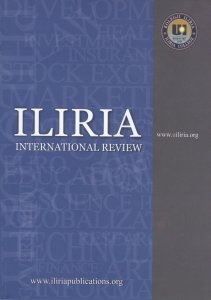Bosnia Must be a Civil State
Bosnia Must be a Civil State
Author(s): Harun HadžićSubject(s): Constitutional Law, International Law, Political history, Government/Political systems, International relations/trade, Transformation Period (1990 - 2010), Period(s) of Nation Building, Politics and Identity
Published by: Kolegji ILIRIA and Felix-Verlag
Keywords: Id; ego and superego; tribe-people-nation; dualism and ambivalence; Bosnian nation; Bosniaks/Bosnians; Bosniak/Bosnian; national and civil state;
Summary/Abstract: In this paper, the author explains historical facts as well as legal and political concepts and terminology in defining "Bosnian nation" and "Bosnian state", with the aim of helping to find a solution for the establishment and normal functioning of the state of Bosnia as a UN member and subject of international law. Today's so-called Dayton Bosnia and Herzegovina is a product of the imposed will of major international powers and unprincipled "attitudes" of the international community, and as such it represents a "sui generis state", established in violation of democratic practices and applicable international norms. In the paper we apply a comparison between Freud's psychoanalytic observation of the development of the individual, on the one hand, and the sociohistorical development of the collectivity - of the people / ethnos and nation, on the other. The paper cites the opinions of relevant authors, citing the case of the former Yugoslavia and USA, and points to certain dilemmas in the application of two possible principles in establishing modern states - national and civil. In applying either of these two principles, it is important to (re)define the Bosniak national name and eliminate the dilemma: „Bosniaks“ or „Bosnians“ to look at the two names in the context of the three existing Bosnian-Hercegovinian peoples – Bosniaks, Serbs, and Croats.
Journal: ILIRIA International Review
- Issue Year: 10/2020
- Issue No: 1
- Page Range: 251-268
- Page Count: 18
- Language: English

